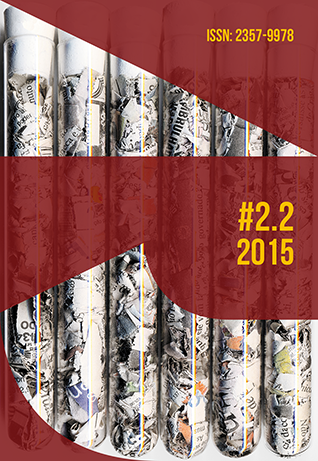Post-production anarchism
DOI:
https://doi.org/10.36025/arj.v2i2.7299Keywords:
Anarchism, Art, America, Consumerism, Come! Unity Press.Abstract
Come! Unity Press was an anarchist community in New York City in the mid nineteen-seventies that based its operations on the ideas of Murray Bookchin, the organizer best known for his theory of “Post-Scarcity Anarchism.” Come! Unity Press offered free access for the publishing of literature and visual propaganda of all sorts; it attracted a wide range of the underserved and unacknowledged: Native Americans, Puerto-Ricans, blacks, gays. Despite this, and like other cultural movements before it, the project initiated “the metamorphosis of political struggle from a compulsory decision into an object of pleasure, from a means of production into an article of consumption” [Walter Benjamin]. Come! Unity Press was a forerunner of the consumer-oriented cultures of today. This article suggests parallels with the ideology of Cubism and the cultural program of the Bavarian People’s Republic of 1919.
Downloads
References
BAUMAN, Zygmunt. Work, consumerism and the new poor. Buckingham: Open University Press, 1998.
BILLINGTON, James. Fire in the minds of men: the origins of the revolutionary faith. New York: Basic Books, 1980.
BOOKCHIN, Murray. The ecology of freedom: the emergence and dissolution of hierarchy. Palo Alto: Cheshire Books, 1982.
BOOKCHIN, Murray. Post-scarcity anarchism. Second edition with a new introduction. Montreal-Buffalo: Black Rose Books, 1986.
CLARK, John. Municipal dreams: social ecological critique of Bookchin’s politics. Originally published in Social ecology after Bookchin, ed Andrew Light. New York: Guildford Press, 1998. Disponível em: http://theanarchistlibrary.org/library/john-clark-municipal-dreams-social-ecological-critique-of-bookchin-s-politics.lt.pdf
COYOTE, Peter. Interview by Etan Ben-Ami. Mill Valley, California. January 12, 1989. Disponível em: http://www.diggers.org/oralhistory/peter_interview.html
"FREE" [Abbie Hoffman]. Revolution for the hell of It. New York: Dial Press, 1968.
MARX, Karl. Capital [1867]. “Preface to the first german edition.”
MILLER, James. Democracy is in the streets. From Port Huron to the Siege of Chicago. New York: Simon and Schuster, 1987.
PROUDHON, Pierre-Joseph. De la création de l’ordre dans l’humanité. [1843] Paris: A. Lacroixet Cie, 1873.
REICH, Charles. The greening of America. New York: Random House, 1970.
ROSZAK, Theodore. The making of a counter culture. Reflections on the technocratic society and its youthful opposition. New York: Doubleday, 1969.
ROUSSEAU, Jean-Jacques. Du contrat social [1762].
SAVIO, Mario. Sit-in Address on the Steps of Sproul Hall. Delivered 2 December 1964, The University of California at Berkeley. Disponível em: https://www.youtube.com/watch?v=fYSY2ohHFnQ
SCHILLER, Friedrich. Über die ästhetische Erziehung des Menschen in einer Reihe von Briefen. Leipzig, 1795.
SHARAF, Myron. Fury on Earth. A biography of Wilhelm Reich. New York: St. Martin's Press, 1983.
TÖNNIES, Ferdinand. Gemeinschaft und Gesellschaft. Abhandlung des Communismus und des Socialismus als empirischer Culturformen. Leipzig: Fues's Verlag, 1887.
WEINSTEIN, Joan. The end of expressionism: art and the november revolution in Germany, 1918-19. Chicago: University of Chicago Press, 1990.
WERNER, Paul. La grande allusion: the ideology of Cubism. Unpublished manuscript, 1997.
Downloads
Additional Files
Published
How to Cite
Issue
Section
License
Copyright (c) 2015 Paul Werner

This work is licensed under a Creative Commons Attribution-NonCommercial-ShareAlike 4.0 International License.

This work is licensed under a Attribution-NonCommercial-ShareAlike 4.0 International (CC BY-NC-SA 4.0) License.
Authors retain copyright, while licensing their work under a Attribution-NonCommercial-ShareAlike 4.0 International (CC BY-NC-SA 4.0) License.


 English
English Português (Brasil)
Português (Brasil)
